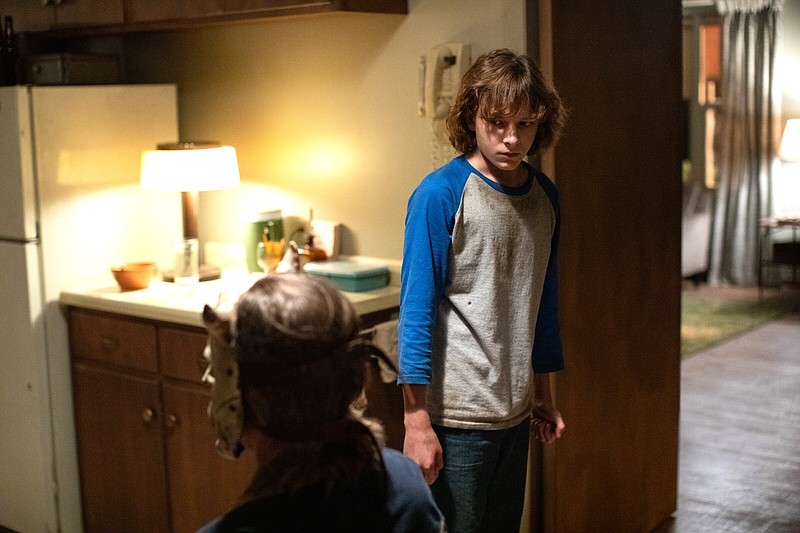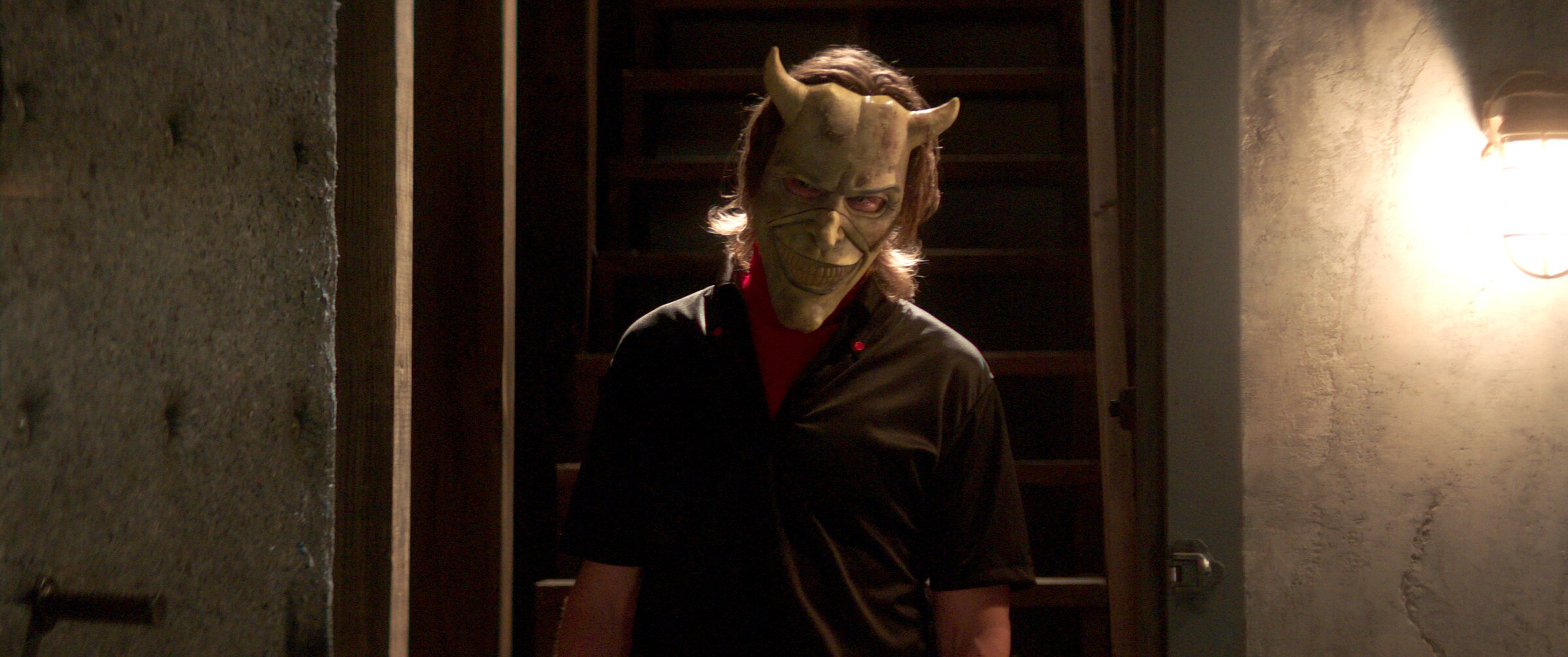The year is 1978, in a small Denver suburb, where a mysterious figure known to the terrified community as "The Grabber" has made off with five teenage boys over the course of a year, never to be seen again. One teen, Finney (Mason Thames), living at home with his drunken lout of a father (Jeremy Davies) and wildly protective kid sister, Gwen (Madeleine McGraw), who occasionally has dreams that psychically reveal things to her, gets snatched by this curiously masked monster (Ethan Hawke), and is thrown down into a basement dungeon, with only a mattress and a single unplugged phone still hung up on the wall.
So, "The Black Phone" is a horror story set in the '70s, in Colorado, with a haunting serial killer who terrifies neighborhood kids, a psychic young girl who implores Jesus in her makeshift shrine to grant her visions of where her brother might have been taken? At first blush, it sounds like an amalgam of practically every Stephen King story ever written, only the short story Scott Derrickson's effectively creepy film is based upon is actually by King's son Joe Hill, channeling the great grandmaster of child/adult terror.
Nevertheless, Derrickson's effort (he also wrote the screenplay along with C. Robert Cargill) is reminiscent of the solid work the pair did on "Sinister" from a few years back, a horror feature with considerable bite. That one also starred the venerable Hawke, who certainly gets top-billing here, but make no mistake who this film really belongs to: The pair of young leads playing siblings, Thames and McGraw, who take the moody atmospherics of Derrickson's grotty '70s nightmare, and turn it into something that feels considerably more lived in and compelling.
Finney's terrifying imprisonment starts to get regularly interrupted by the ringing of that unplugged phone on the wall. At first, there's no answer on the other line, but eventually other voices start pouring through, until it becomes clear they are the paranormal communications from the dead spirits of The Grabber's previous victims, including that of Finney's bad-ass, martial arts friend, Robin (Miguel Cazarez Mora), snatched just before he was, some weeks ago. Each of the voices implores him to take advantage of small things they were able to hide before they were finally murdered, a length of rope here, the combination to an outside lock there, and suggests plans of escape of which they themselves weren't able to take advantage.
Meanwhile, Gwen dreams furiously, catching images of the outside of the house, and the barren, lifeless tree that resides on the front lawn, information that she helpfully passes on to the pair of detectives Wright and Miller (E. Roger Mitchell and Troy Rudeseal) assigned to the case, who thankfully take her visions seriously in their pursuit.
What Derrickson has accomplished here is no small feat: That setting, which seems gray and pitiless as if shot through a shroud, flits between various era-appropriate film stocks, while the director fills his frame with '70s paraphernalia -- everything from muscle cars to magazine racks -- in a way that successfully evokes the age without condescending to it. In this way, he manages to capture that particular sense of pervasive malevolence of the era, so common to the decade of UFOs, serial killers, and whacked out cultists, which hangs over the characters like a murky rain cloud.
It also avoids many of the pratfalls of other recent pop culture efforts set in the past -- the self-conscious nostalgia of shows like "Stranger Things," or the empty formalist homage of throwback horror like "X" -- instead it feels much more successfully of a specific time itself, the chaos and uncertainty of adults, leaving their kids to fend for each other at the hands of monsters like The Grabber, or worse, while they were off trying to find themselves.
It is a story of empowerment, in the end, but Finney's life before he gets snatched, living with an abusive father, and at the mercy of the various gangs of bullies and thugs that target him (but for his fierce sister and mayhem loving friend Robin, it seems as if he would be continually wailed upon), while having to cope with the suicide death of his mother (also given to psychic impressions) some time before, was plenty bleak enough as it was. The events of the film might confirm it to him, but the poor kid had already deduced the best way to survive the chaotic, haphazardly gruesome era of his childhood.
More News
None‘The Black Phone’
87 Cast: Mason Thames, Madeleine McGraw, Ethan Hawke, Jeremy Davies, James Ransone
Director: Scott Derrickson
Rating: R
Running time: 1 hour, 42 minutes
Playing theatrically

